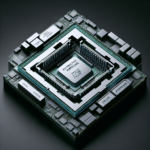How CPUs Affect the Speed of Encryption and Decryption

Introduction
Encryption and decryption are fundamental processes in the realm of cybersecurity, ensuring that sensitive information remains confidential and secure. The speed at which these processes occur can significantly impact the performance of various applications, from secure communications to data storage. One of the critical factors influencing the speed of encryption and decryption is the Central Processing Unit (CPU). This article delves into how CPUs affect the speed of these cryptographic processes, exploring the underlying mechanisms, the role of different CPU architectures, and the impact of hardware acceleration.
Understanding Encryption and Decryption
What is Encryption?
Encryption is the process of converting plaintext data into a coded form, known as ciphertext, using an algorithm and an encryption key. This transformation ensures that unauthorized parties cannot easily access the original information. Encryption is widely used in various applications, including secure communications, data storage, and online transactions.
What is Decryption?
Decryption is the reverse process of encryption. It involves converting the ciphertext back into its original plaintext form using a decryption key. The decryption process ensures that authorized parties can access the original information while keeping it secure from unauthorized access.
The Role of CPUs in Encryption and Decryption
CPU Architecture and Performance
The architecture of a CPU plays a crucial role in determining its performance in encryption and decryption tasks. Modern CPUs are designed with multiple cores, high clock speeds, and advanced instruction sets that can significantly enhance cryptographic operations.
- Multiple Cores: Multi-core CPUs can handle multiple encryption and decryption tasks simultaneously, improving overall performance.
- Clock Speed: Higher clock speeds enable CPUs to process more instructions per second, accelerating cryptographic operations.
- Instruction Sets: Advanced instruction sets, such as Intel’s AES-NI (Advanced Encryption Standard New Instructions), provide hardware acceleration for specific cryptographic algorithms, boosting performance.
Hardware Acceleration
Hardware acceleration refers to the use of specialized hardware components to perform specific tasks more efficiently than general-purpose CPUs. In the context of encryption and decryption, hardware acceleration can significantly enhance performance.
- Cryptographic Co-processors: These dedicated hardware components are designed to handle cryptographic operations, offloading the workload from the CPU and speeding up the process.
- Graphics Processing Units (GPUs): GPUs, with their parallel processing capabilities, can accelerate certain cryptographic algorithms, particularly those that benefit from parallelism.
- Field-Programmable Gate Arrays (FPGAs): FPGAs can be programmed to perform specific cryptographic tasks, offering a balance between flexibility and performance.
Impact of CPU Features on Encryption and Decryption Speed
Instruction Sets and Extensions
Modern CPUs come with specialized instruction sets and extensions that can significantly enhance the speed of encryption and decryption processes. One notable example is Intel’s AES-NI, which provides hardware acceleration for the AES algorithm.
- AES-NI: Intel’s AES-NI includes a set of instructions that accelerate the AES algorithm, reducing the number of CPU cycles required for encryption and decryption. This results in faster processing times and improved performance.
- ARM Cryptography Extensions: ARM processors also offer cryptographic extensions that accelerate various algorithms, including AES and SHA (Secure Hash Algorithm), enhancing performance on ARM-based devices.
Parallel Processing
Parallel processing capabilities, such as those found in multi-core CPUs and GPUs, can significantly impact the speed of encryption and decryption. By distributing the workload across multiple cores or processing units, these devices can perform cryptographic operations more efficiently.
- Multi-core CPUs: Multi-core CPUs can handle multiple encryption and decryption tasks simultaneously, improving overall performance. This is particularly beneficial for applications that require high throughput, such as secure communications and data storage.
- GPUs: GPUs excel at parallel processing and can accelerate certain cryptographic algorithms, particularly those that benefit from parallelism. This makes them ideal for tasks such as password hashing and brute-force attacks.
Cache and Memory Hierarchy
The cache and memory hierarchy of a CPU can also impact the speed of encryption and decryption. Efficient use of cache memory can reduce the time required to access data, improving overall performance.
- Cache Size: Larger cache sizes can store more data, reducing the need to access slower main memory. This can improve the performance of cryptographic operations that require frequent data access.
- Memory Bandwidth: Higher memory bandwidth allows for faster data transfer between the CPU and memory, enhancing the performance of encryption and decryption tasks.
Real-World Applications and Performance Considerations
Secure Communications
In secure communications, such as Virtual Private Networks (VPNs) and Secure Sockets Layer (SSL) connections, the speed of encryption and decryption directly impacts the overall performance and user experience. Faster CPUs with hardware acceleration can significantly reduce latency and improve throughput, ensuring smooth and secure communication.
Data Storage and Retrieval
Encryption and decryption are essential for securing data stored on devices and in the cloud. The speed of these processes can affect the performance of data storage and retrieval operations. CPUs with advanced instruction sets and hardware acceleration can enhance the performance of encrypted storage solutions, ensuring quick access to secure data.
Cryptographic Algorithms
The choice of cryptographic algorithm can also impact the speed of encryption and decryption. Some algorithms are more computationally intensive than others, requiring more CPU resources. For example, RSA (Rivest-Shamir-Adleman) encryption is more computationally intensive than AES, making it slower for large-scale encryption tasks. CPUs with hardware acceleration for specific algorithms can mitigate these performance differences.
FAQ
How does CPU clock speed affect encryption and decryption speed?
CPU clock speed determines how many instructions a CPU can process per second. Higher clock speeds enable CPUs to perform cryptographic operations more quickly, reducing the time required for encryption and decryption.
What is hardware acceleration, and how does it impact encryption and decryption?
Hardware acceleration involves using specialized hardware components to perform specific tasks more efficiently than general-purpose CPUs. In encryption and decryption, hardware acceleration can significantly enhance performance by offloading cryptographic operations to dedicated hardware, such as cryptographic co-processors, GPUs, or FPGAs.
Can multi-core CPUs improve the speed of encryption and decryption?
Yes, multi-core CPUs can handle multiple encryption and decryption tasks simultaneously, improving overall performance. This is particularly beneficial for applications that require high throughput, such as secure communications and data storage.
What are some examples of CPU instruction sets that enhance encryption and decryption speed?
Examples of CPU instruction sets that enhance encryption and decryption speed include Intel’s AES-NI (Advanced Encryption Standard New Instructions) and ARM Cryptography Extensions. These instruction sets provide hardware acceleration for specific cryptographic algorithms, reducing the number of CPU cycles required for encryption and decryption.
How does the choice of cryptographic algorithm impact encryption and decryption speed?
The choice of cryptographic algorithm can significantly impact the speed of encryption and decryption. Some algorithms are more computationally intensive than others, requiring more CPU resources. For example, RSA encryption is more computationally intensive than AES, making it slower for large-scale encryption tasks. CPUs with hardware acceleration for specific algorithms can mitigate these performance differences.
Conclusion
The speed of encryption and decryption is a critical factor in the performance of various applications, from secure communications to data storage. CPUs play a vital role in determining the speed of these cryptographic processes, with factors such as CPU architecture, clock speed, instruction sets, and hardware acceleration significantly impacting performance. By leveraging advanced CPU features and hardware acceleration, it is possible to enhance the speed of encryption and decryption, ensuring secure and efficient processing of sensitive information.




